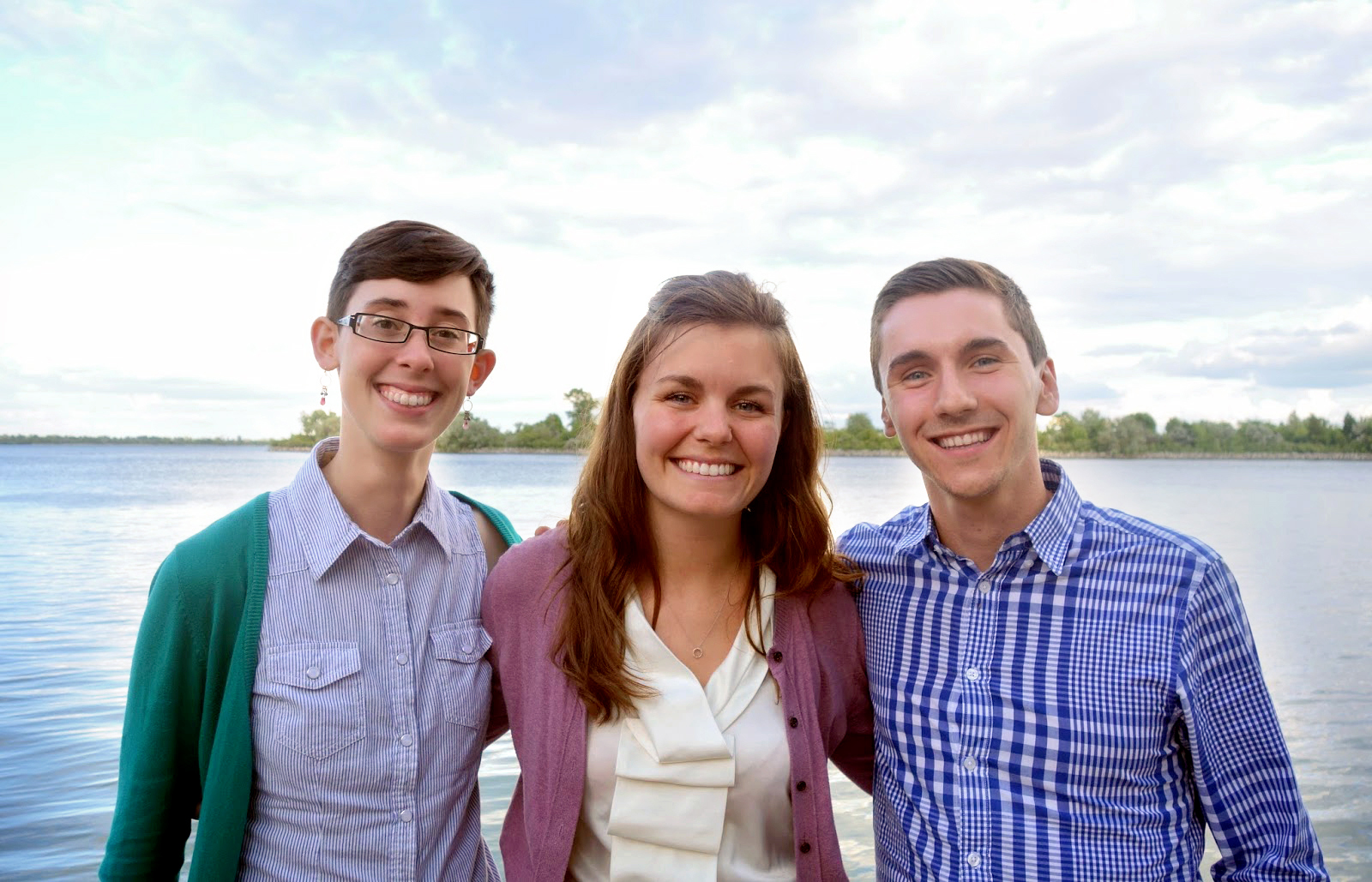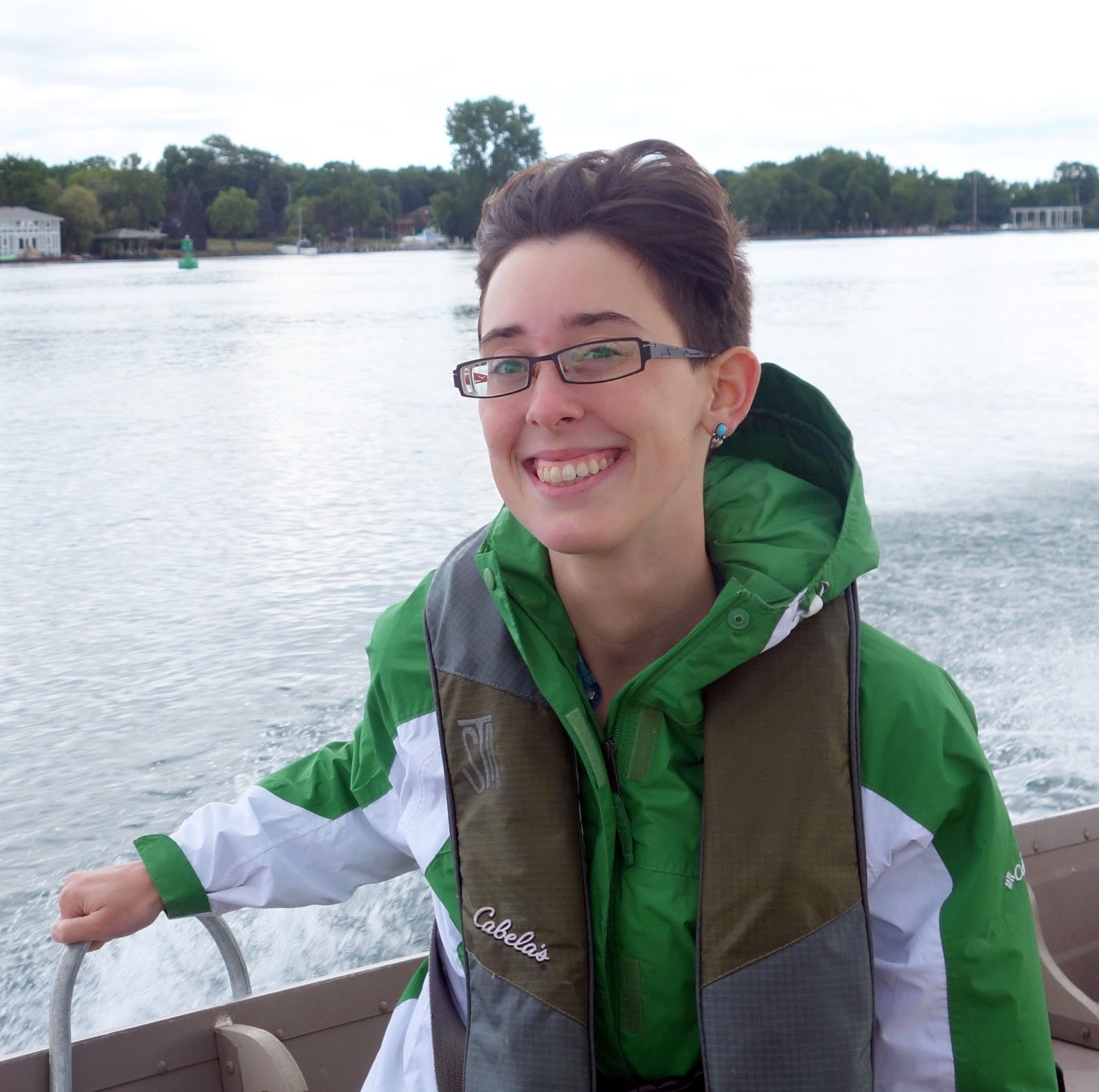Our summer internship program has wrapped up for another year. This year, seven students and recent graduates worked with our specialists on a broad range of issues, including AIS prevention, sediment remediation, and water supply planning. Erika Lower and Mark Krupa spent their internship working with Caitie McCoy, IISG’s social scientist.
Their favorite experiences came while onsite at Great Lakes Legacy Act sediment remediation projects. One such trip took them to the Upper Trenton Channel near Detroit to conduct a needs assessment that will help the project team tailor outreach products and messaging to those who use and visit the river.
“Our Detroit trip was definitely my favorite part,” said Mark, a University of Illinois alum. “We talked to over 30 different community members. It was great to see the site we had researched and really get to know the community, their concerns, and how they value the waterway.”
 These experiences further boosted their interest in the social science and highlighted its importance in environmental conservation.
These experiences further boosted their interest in the social science and highlighted its importance in environmental conservation. With their internship complete, Erika and Mark are turning their attention to graduate school. Mark will begin a Master’s in public health at Saint Louis University later this month. And Erika plans to complete graduate work in science communication or environmental social science.



